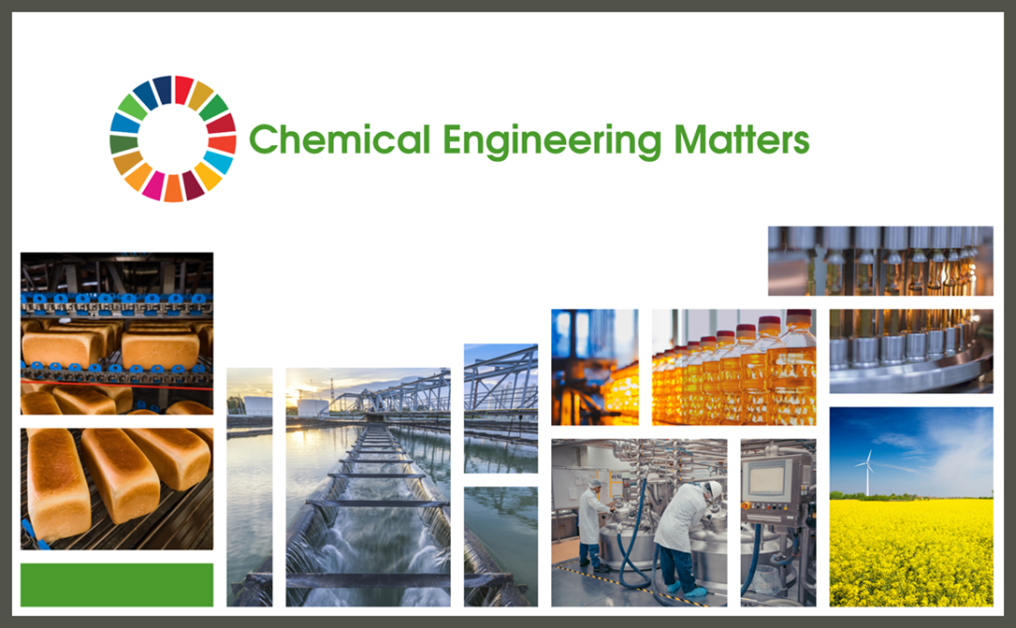What’s new in Chemical Engineering Matters?

13th December 2022
As the 4th edition of IChemE’s technical roadmap, Chemical Engineering Matters, is launched, we asked IChemE Vice President Learned Society, Alexandra Meldrum, what the document means to her and for her thoughts on why it is critical for chemical engineers to address the four challenge areas identified.

Name: Alexandra Meldrum
Role: University of New South Wales (UNSW), Expert Panelist for Office of the Chief Scientist & Engineer, Australia, and Australian Institute of Management (AIM)
IChemE role: Vice President Learned Society and Member of the IChemE Board of Trustees
Bio: In speeches, I say I work in the “essentials of life”. Chemical engineers take a central role in tackling the Global Grand Challenges for our society – including those in food, water, climate change, energy, safety and health. I’m a chemical engineer, economist and non-executive director with 25 years of experience in industry, universities, not-for-profit organisations and government.
Can you explain what Chemical Engineering Matters is all about?
Chemical Engineering Matters is IChemE’s technical roadmap. The report outlines key developments in scope and application of chemical engineering within our changing societies and economies. It looks more closely at some core challenge areas and the technologies whereby chemical engineers create, maintain and improve quality of life, now and in the future.
It provides valuable guidance about the breadth, systems approach and importance of chemical engineering, providing signposts to developing and expanding our discipline in future through links to the United Nations Sustainable Development Goals (UN SDGs).
As this is edition 4, please can you tell us what is new in this edition?
This edition of Chemical Engineering Matters reflects the growing and increasingly urgent global focus on sustainable development. Since the previous edition, IChemE has published our Climate Change Position Statement, and we are now designing, implementing and tracking our climate initiatives. This latest version of Chemical Engineering Matters complements that position statement, as it re-examines the four challenges of water, energy, food and sustainable wellbeing, looking at these challenges through the lens of the UN SDGs.
The document also weaves in themes from IChemE’s current ‘priority topics’ of major hazards management, digitalisation and responsible production, and associated needs for ethical conduct, equality, diversity and inclusion. It also provides insights into the future roadmap of chemical engineering as showcased through IChemE’s centenary project in 2022, ChemEng Evolution. There are handy links at the back of the document for exploring more information.
You mention four challenge areas, what are they?
Chemical Engineering Matters' four key challenges of water, energy, food and wellbeing are all part of interconnected and dynamic systems, located within societies and the natural environment. Applications of technologies are influenced by cross-cutting knowledge and skills, which include the fundamentals of chemical engineering, manufacturing, innovation, process safety and digitalisation.
The document recognises the importance of multi-disciplinary and collaborative working. Sustainability, ethics, value and diversity are also identified as all-encompassing principles that underpin efforts in all the areas.
Who would benefit from reading the document?
Chemical Engineering Matters would be extremely valuable to a variety of readers, including chemical engineers who are looking to develop their careers, move into new areas, or who are curious about wider topics and innovation in their profession. The report could also be used to guide learning outcomes in academic curricula or by those engaging with policy makers. Students interested in chemical engineering could use the information to guide their future careers. The document also helps to communicate what chemical engineering involves to the wider public.
How has Chemical Engineering Matters helped you in your career?
It has been invaluable in my own career. Since the publication of the first edition in 2013, I have referred to it often as I felt it was a useful guide to understand the breadth of chemical engineering, beyond those disciplines in which I was working. It really opened my eyes to how central chemical engineering is in achieving a sustainable future and solving major global challenges. As I progressed in my career, the document gave me inspiration on future directions I might explore.
Chemical Engineering Matters references how crucial chemical engineers will be in addressing future challenges. How can chemical engineers continue to serve society?
Our world is facing many challenges and opportunities that are dynamic and interconnected. Chemical engineering skills are critical to address these - for instance, as societies seek to transition and decarbonise economies, improve productivity and drive economic growth. Challenges include sustainable development, addressing the negative impacts of climate change, circular economy development, and access to and security of affordable energy, clean water, food and health.
Chemical engineers play an important role in research and innovation and bring science-based expertise and skills in systems, safety and digitalisation, collaborating with others, globally and locally, to make a real difference.
How was this document written?
I really do want to thank the member volunteers and staff involved in this revision as well as its earlier editions. A document like this is only possible because of the thought leadership provided by our learned society groups across the world. I would particularly like to thank the many chemical engineers and groups within IChemE who volunteered their expertise and input to write this document – we had sixty groups contribute to the consultation in 2022.
How would you like to see Chemical Engineering Matters used?
As our world and technology continues to change, this document will evolve with it. I encourage everyone to read, share and discuss. Let’s continue our engagement about how chemical engineering matters.
To find out more about Chemical Engineering Matters, view the document at www.icheme.org/chemengmatters or follow #ChemEngMatters on social media.